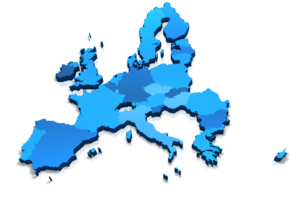The Shift in Global Dynamics: Insights from Munich
In a pivotal moment for global geopolitics, Zanny Minton Beddoes, the authoritative Editor-in-Chief of The Economist, captivatingly asserted, "Well, the world changed yesterday." This statement encapsulates not only the shifting sands of European security but also a resurging wave of anti-American sentiment. What catalyzed this fervor? Recent developments from a new administration have thrown Ukraine’s future, transatlantic relations, and European stability into question, igniting concerns among analysts and citizens alike.

Europe’s Stance on Peace
The current trajectory suggests that Europe is unwilling to pursue peace negotiations, stoking fears of future conflict. Our advanced economic models at Extreme Investor Network have consistently signaled a looming Panic Cycle for the Euro, projected for 2026. As smart money exits Europe, a historical pattern echoes: just as in the World Wars, gold reserves in London are once again migrating to New York.
This exodus isn’t merely about finance; it’s symptomatic of a deeper malaise—an entrenched and anti-democratic political apparatus that does not represent the will of the European populace. Kaja Kallas, the unelected Vice-President of the European Commission, recently made headlines by dismissing potential peace agreements with Putin that could be brokered by Trump. One cannot help but question: Are European citizens being asked about the risk to their way of life in a potential conflict with Russia for territorial disputes involving Ukraine?
The Munich Address: A Call for Responsibility
During a recent address in Munich, J.D. Vance delivered a striking critique of European democracy. He highlighted the repression of free speech, mass migration issues, and how established political structures are increasingly marginalizing populist movements. His remarks resonated with some observers, likening his sentiments to rhetoric that could easily be attributed to Putin himself.
Beddoes points out that while this "Trump quake" may unsettle traditional European frameworks, it might be the catalyst needed for Europe to step up its security game. She observed an awakening at the Munich conference: leaders recognizing the urgent need for increased defense spending reveals a consensus that is long overdue. Germany’s President Frank-Walter Steinmeier acknowledged, "We got the message."

Historical Parallels and Future Concerns
History guides our understanding of military engagement and public sentiment. When President Franklin D. Roosevelt sought to send troops to Europe, the American people firmly resisted, recalling a bitter Irish past intertwined with British oppression. It wasn’t until Pearl Harbor that the U.S. was drawn into WWII, thanks to a carefully orchestrated response to global tensions.
Today, as Neoconservative influences appear to dominate European politics and media, there is genuine concern about the path ahead. If tensions escalate, there is fear that Article 5 of NATO could be invoked, potentially dragging an unwilling U.S. back into a conflict it seeks to avoid. Speculating about the extremes these political factions may resort to, one can only hope that wisdom prevails.
Conclusion: Navigating Uncertain Waters
At Extreme Investor Network, we emphasize the importance of understanding these geopolitical shifts, not as isolated events but as interconnected signals that affect global markets and investment opportunities. The current climate serves as a crucial reminder of the intricate balance between diplomacy, public sentiment, and political ambition.
As we move forward, it’s essential for investors to remain vigilant, informed, and adaptable. The road ahead may be fraught with challenges, but by staying ahead of the curve, we can make informed decisions in a world that is undeniably changing.
Keep following us for more in-depth insights and analysis on how these developments can impact your investment strategy. Let’s stay informed together!

